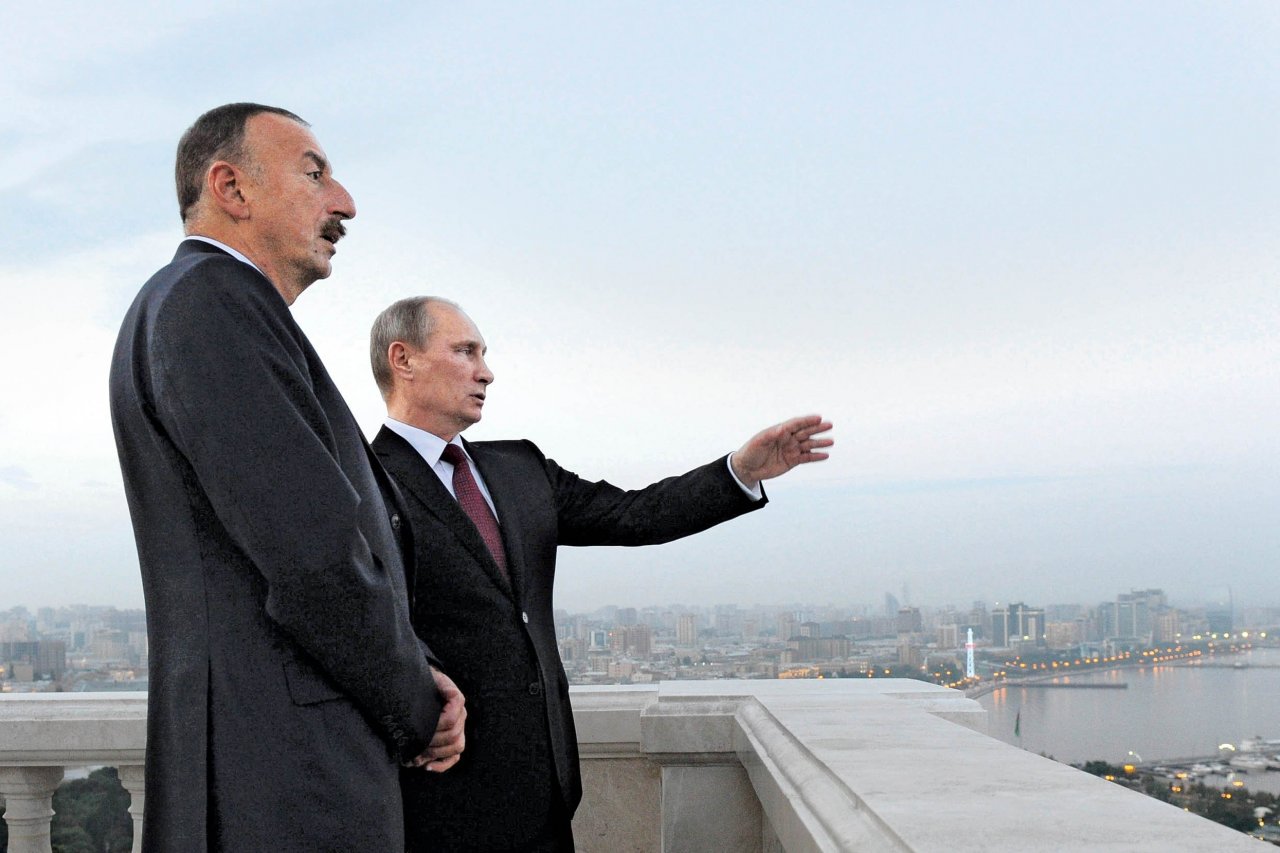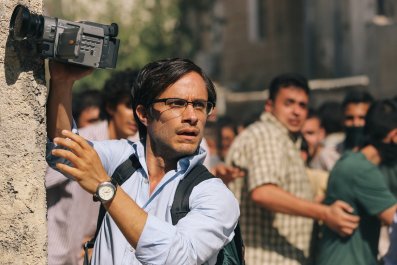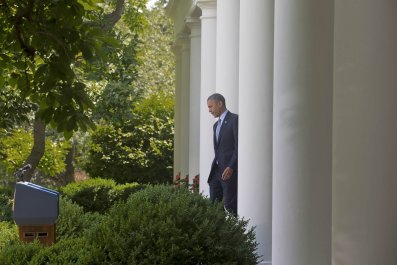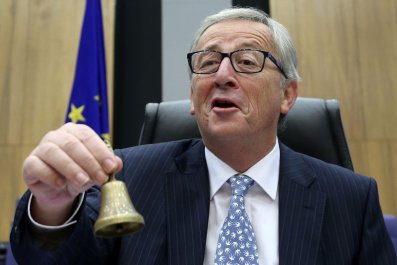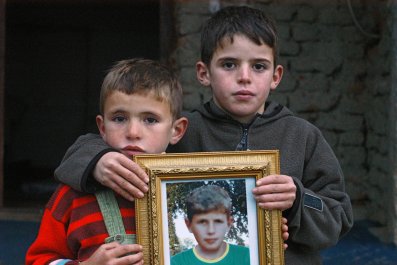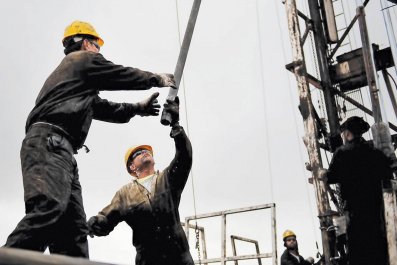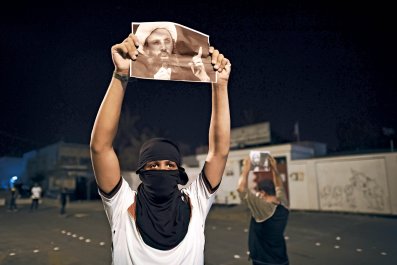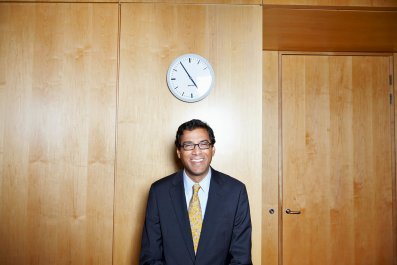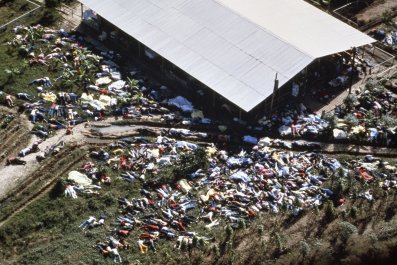Since the story goes that the fax machine hastened the fall of the old Soviet-controlled Eastern Bloc 25 years ago, you'd think the Internet and cellphones would be flushing all of the world's autocrats and fanatics down the commode of history.
The fax is to today's global, mobile and social networks what a rubber ducky is to an aircraft carrier. The Internet in all its forms is ubiquitous in developed nations and growing fastest in the least-developed nations. Some governments try to block or constrain the global network but increasingly find they can't. Iran has tried as hard as any nation. In early November, its technology minister, Mahmoud Vaezi, cried uncle. "Our technical studies indicate that the number of social networks such as WhatsApp, Viber and Tango is so numerous that shutting them down is not the solution," he said in response to a judiciary demand to curtail them. As many as 5 million of Iran's 77 million people use WhatsApp and Viber.
And the planet is going to get only more connected. The trajectory suggests that in a decade, you'll be able to reach almost anyone anywhere. We'll be some 8 billion people, networked together, all sharing the same damn cat videos.
What will that mean to the world's societies? On November 10, when President Barack Obama released a message in support of Net neutrality, he said that an open Internet is crucial to America's "very way of life." He added, "By lowering the cost of launching a new idea, igniting new political movements and bringing communities closer together, [the Internet] has been one of the most significant democratizing influences the world has ever known."
So it seems the world is saved! Greater connection will lead to a better-informed public, which leads to demands for freedom and the end of tyranny. Pax Internet is at hand, right?
But that's not how things are playing out. The list of ongoing armed conflicts is still long. Vladimir Putin's Russia is driving in reverse, toward autocracy. The Arab Spring blossomed thanks to social media, and then it withered into ISIS and Egypt's Abdel-Fattah el-Sissi.
This is where we often misplace hopes and dreams about the hyper-networked age. Just as printing presses could pump out either The Great Gatsby or Mein Kampf and passenger jets could be flown into office towers, an open and widely accessible Internet can be harnessed for harm as well as good.
Earlier this year, popular Russia-based social network VKontakte (which, showing a lot imagination on the part of the site's founders, is a dead ringer for Facebook) played a role in Putin's drive to take parts of Ukraine. Pro-Russia groups used the site to organize for battle. In April, the Putin government demanded VKontakte hand over information about pro-Ukraine protesters who were on the site, no doubt so they could be harassed or arrested. The company's CEO, Pavel Durov, refused. Not long after, Durov mysteriously resigned and fled to St. Kitts. Not quite your happy Silicon Valley kind of successful startup story.
ISIS, as we're constantly reminded, uses social media to recruit fighters and sows terror by posting beheading videos. In August, the president of Azerbaijan used Twitter to threaten war with Armenia.
Global ultra-connectedness can backfire in nefarious ways. "It can make it easier to build a silo than ever before," says University of Michigan psychologist Richard Nisbett, author of The Geography of Thought: How Asians and Westerners Think Differently...and Why. On social networks, it's easy to block out people who don't think like you, Nisbett explains, and strengthen connections with people who share your outlook. You can reach across the globe to find like-minded people and "build your own echo chamber," he says.
This is fundamentally different from the pre-Internet days, when you had to mingle with your neighbors and colleagues and soak up all their various opinions and points of view. So at the macro level, an open and free Internet encourages a vast and cacophonous diversity of thought. At the individual level, it can foster a narrowing of thought and a deepening of conviction—dangers to dialogue, peace and freedom.
We see signs of this in the U.S. Political echo chambers are getting worse, not better. Polls this year show that partyism has become more divisive than racism. Republicans and Democrats don't want to tolerate each other, and online they don't have to. Social media are throwing gasoline on that fire.
Back in the 1980s, a repressive empire like the Soviet Union could do a lot to seal off outside information from its populace—controlling newspapers and TV, keeping people from traveling abroad, all while pumping out its propaganda. (Only North Korea has managed to hang on to that model of governing.) As life inside the Soviet sphere grew more miserable, many of its citizens didn't know how much better things could be. But then those bleeping, kerchunking fax machines showed up in offices, spreading news from outside. Before long, you had Gdansk shipyard protests and the Berlin Wall going down, and that was it for the USSR.
We can still hope that Obama is right, that hyper-connectedness is the fax machine times a zillion and will act as a counterforce to tyranny. On free and open networks, Iranians and Cubans and Chinese can hear the West's best ideas, and vice versa.
Certainly we're not going to stop the progress of networks. The world will be a completely connected one. We just have to remember that technology is always neutral. Humans are the X factor. As Jon Stewart said when describing how the Iranian government used a Daily Show skit as a reason to arrest journalist Maziar Bahari: "You can't control what idiots will weaponize."



